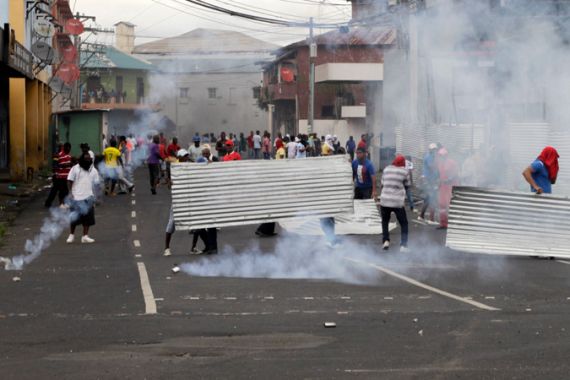Panama suspends plan to sell public land
Responding to ongoing protests that have left two dead, government suspends sale of land at duty-free zone in Colon.

Panama’s government has suspended plans to sell public land in one of the country’s poorest areas, but disgruntled locals in the city of Colon have continued their protests in a dispute that has left two people dead.
The protesters object to legislation signed in to law on Friday, and now on hold, that would let export-import businesses buy land they are now leasing in Colon’s duty-free zone.
Under the law, 35 per cent of proceeds from land sales in the zone would go to a trust run by Colon authorities to make social investments, while the rest would go into the national treasury coffers.
After protests erupted, the government said it would put 100 per cent of the proceeds into local social development, but the concession failed to satisfy demonstrators.
“While the initiative is being discussed the government will not move forward on land sales; in other words, sales are postponed,” government spokesman Luis Eduardo Camacho said late on Tuesday.
President Ricardo Martinelli said in his Twitter account that “if the people of Colon don’t want the land in the duty-free zone to be sold, the sale will be cancelled.”
Tear gas
Heavily armed police used tear gas and fired shots in the air to disperse rioters who have been protesting since Friday.
“We are demanding that the law be struck down. We do not want 100 per cent. We do not want the lands to be sold,” Felipe Cabezas, leader of the Colon Broad Front, which is leading the demonstrations against the government, told RPC Radio.
Frank De Lima, the economy minister, said he still hoped a deal could be worked out in Colon, where two days of strikes have taken a heavy toll on the local economy.
More than 3,000 companies operate in the duty-free area, moving $29bn worth of goods in 2011 and bringing $1.7bn to the country’s gross domestic product.
Martinelli appealed for calm, saying in a TVN-2 television interview that the law would benefit the province of Colon.
He accused “agitators” of opposing it for political reasons and “small-minded interests”.